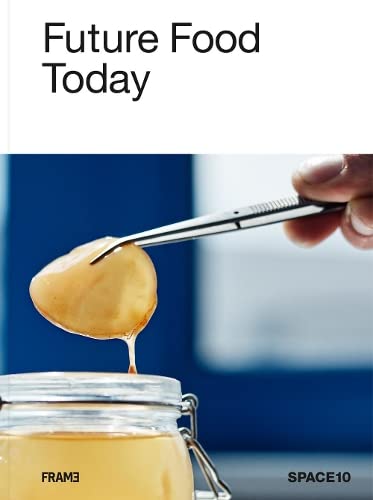-
Shop
- Back
- Shop
- Pre-Order Books
- New Releases
- Vintage Books
- Sale Books
- Children's
- Shop All
- Vintage Menus
- Risographs
- Aprons & Totes
- Moulds
- Gift Cards
- Americas
- Art & Design
- Asia & Oceania
- Europe
- Jewish
- Middle Eastern & African
- Baking & Sweets
- Drinks
- Food Writing
- Gardening & Preserving
- General & Ingredients
- Health
- Professional
- Technique
- Magazine
- Upcoming Events
- About Us
- Cookbook Club
-
Shop
- Pre-Order Books
- New Releases
- Vintage Books
- Sale Books
- Children's
- Shop All
- Vintage Menus
- Risographs
- Aprons & Totes
- Moulds
- Gift Cards
- Americas
- Art & Design
- Asia & Oceania
- Europe
- Jewish
- Middle Eastern & African
- Baking & Sweets
- Drinks
- Food Writing
- Gardening & Preserving
- General & Ingredients
- Health
- Professional
- Technique
- Magazine
- Upcoming Events
- About Us
- Cookbook Club



Future Food Today (SPACE 10)
• Future Food Today is both a coffee table book and a kitchen tool, challenging the category of cookbooks both visually and conceptually
• It frames the zeitgeist around food and future food in a visually appealing and easily understandable way
• Futuristic and aspirational, this cookbook with a lab mindset offers a down-to-earth and hands-on approach to food
IKEA’s future living lab SPACE10 has made their first ever cookbook with a collection of recipes based on future food trends. What we eat today shapes tomorrow. Considering the world’s food production is challenging the planet, we need to eat in alternative ways – now and in the future. Future Food Today is a collection of recipes based on future food trends, straight from the SPACE10 food lab and test kitchen. The book expresses SPACE10’s beliefs around food and food production. From “dogless hotdogs” and “algae chips”, to “bug burgers” and “microgreen popsicles”, it’s packed with dishes we could one day be eating on a regular basis. It also includes simple guides to producing food locally and sustainably, and explains how to use alternative ingredients, gastronomic innovation and technology — such as hydroponic farming — to offer an alternative to the planet’s growing demand for food and excessive consumption of meat.
